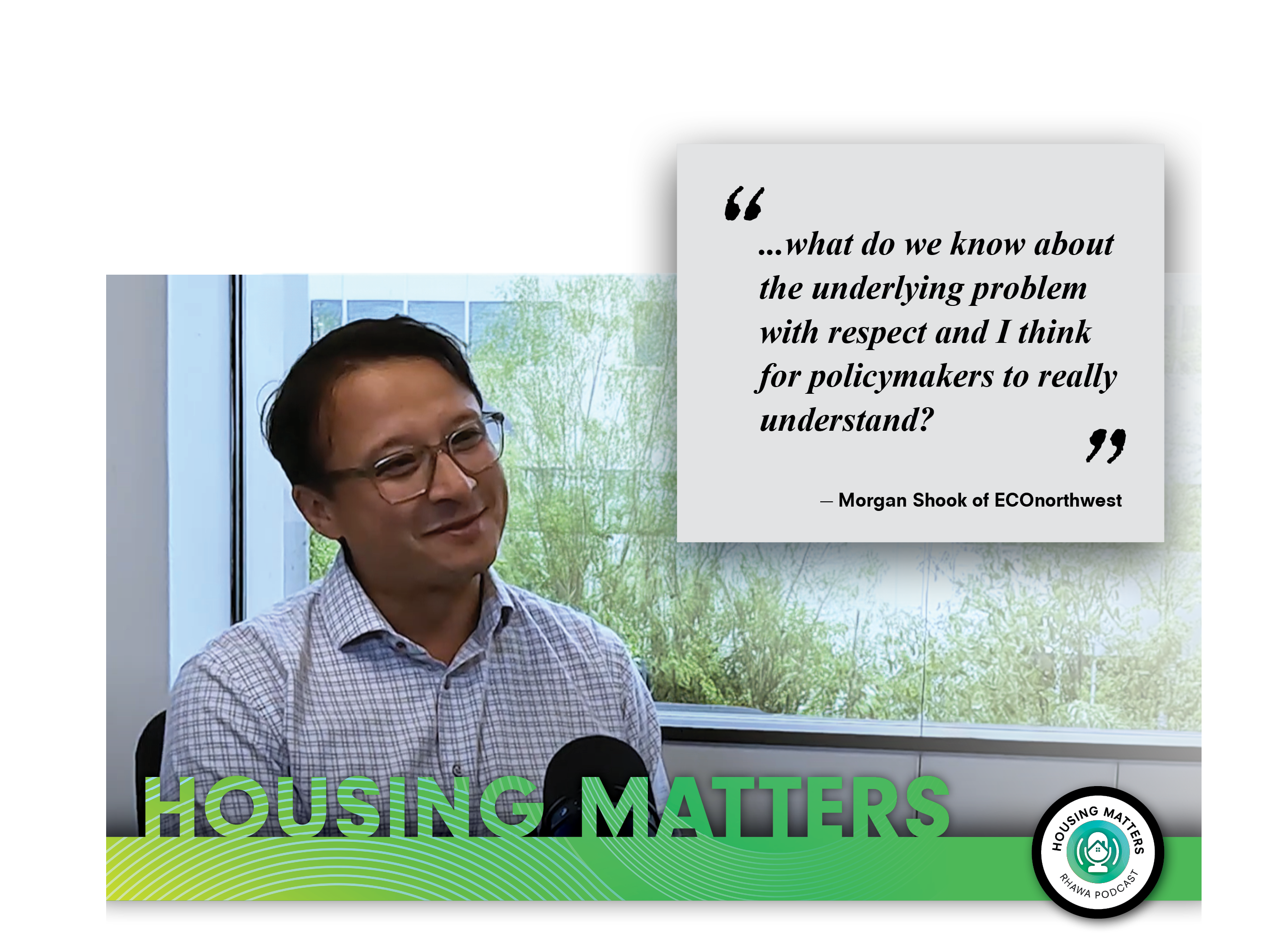The ECOnomics of Rental Housing with Morgan Shook of ECOnorthwest
If you watched any of the testimony against HB 2114 during the 2024 legislative session, then you may have seen Morgan Shook of ECOnorthwest elaborating on why rent control is bad policy and leads to rising costs on cur rent rental units as well as disincentives builders. I had a great conversation with Morgan where we discussed not just housing policy in Washington State, but the effect all over the country. 
We briefly discussed the history of rent control and how many of the cities that still maintain rent control have had these on the books since the early 1970’s. Rent control is an extremely politically charged policy and difficult policy to remove once implemented. However, Massachusetts removed their rent control by voter initiative in 1994. A case study focused on Cambridge Massachusetts showed that permits for new buildings increased by 20% in the first year without rent control and property values rose nearly $2 billion dollars more than expected over the first decade. This led to a vast increase in property tax revenue and investment in the sister city to Boston.
We dove deeper into a Stanford study released in 2018 that really examined the long-term effects of rent control policies in the city of San Francisco which chose to expand rent control in the 1990’s rather than repeal the policy. “In a very short-term perspective that price control was very beneficial to a lot of folks and particularly folks who are very disadvantaged and at the sort of fringes of the housing market. You cap their rent, they were able to kind of stay in those places,” Shook said and talked a little more in detail about how the policy meant to help the disadvantaged eventually ended up helping much wealthier families and individuals with their housing. “But then as you looked over time, those folks left and were replaced with other folks who were not necessarily at the same level of disadvantage who were occupying some of those units.”
Morgan and I discussed how many of the units that were rentals were either upgraded to nicer units to entice high er-income individuals or were simply taken off the rental market and sold to be owner-occupied. Much of the new construction in San Francisco has been geared toward wealthier and more affluent individuals since the mid-90s as a result of rent control policies and this has accelerated gentrification in the city by the bay.
Morgan put together a research study about the unintended consequences of rent control policies and how those may impact rental housing affordability and availability in the Evergreen State.
“Investment in Washington Housing is a very key part of our tax base given our, I would call them, unique proper ty tax laws and the fact that sales tax is collected on construction activities. So, the point of this being here is to say, what do we know about the under lying problem with respect and I think for policymakers to really understand? A lot of this is because we are not pro ducing enough housing. That is the central piece,” Shook said as he elab orated on how the combo of struggling tenants and rent control in addition to low construction rates end up causing a domino effect problem. “How does rent control then sit on top of that, given the best information that we have? And in sort of older or more strict forms of that, we would expect to have what we see in other places sort of unintended long-term consequences with respect to the housing problem. So, the underlying problem, you’ve actually made worse.”
We discussed how some local policies such as those passed in Seattle, have led to detrimental outcomes for the rental market in our state’s biggest city. “People have choices and here right the choice is really about do I keep it in the rental pool, or do I do something else with it? In a lot of those cases, the choice was to sell. It was converted from a renter occupancy to a single-family occupancy. So, you actually have a net loss of housing in this space for rentals.” Morgan concluded in his study for ECOnorthwest that some form of tenant rental assistance program could really make a meaningful impact on tenants having trouble with paying their rent. For my full interview with Morgan Shook of ECOnorthwest, check out the RHAWA Housing Matters podcast available on all popular podcast plat forms. If you prefer the video version, that is always available on the RHAWA YouTube channel along with a lot of other great video content.

